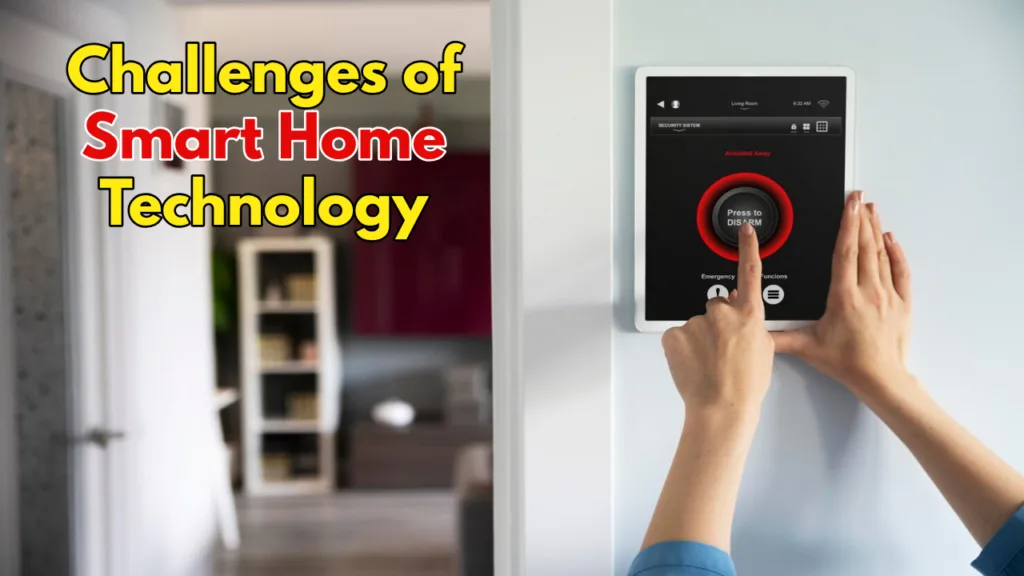Smart homes, once a futuristic dream, are now a rapidly growing reality. These homes, equipped with interconnected devices and systems, promise convenience, enhanced security, and energy efficiency.
According to recent market data, the global smart home market is expected to reach $154.4 billion in 2024. This article explores the growing popularity of home automation, its benefits, and the challenges that accompany this technological advancement.
Growing Popularity
Increased internet penetration, rising consumer demand for innovative home solutions, and a focus on energy efficiency are significant contributors to why people choose high-tech homes. Interestingly, similar to how predictive models like the aviator predictor are used in gaming to anticipate outcomes, smart home systems are beginning to incorporate predictive technologies to anticipate user needs and optimize home operations.
Data from Statista indicates that the number of homes using automation technology worldwide is projected to increase to 493.55 million by 2025, up from 224.18 million in 2020. This rapid adoption is evident across various demographics, with millennials leading the way in embracing automation technology.
Benefits of Technological Solutions for Homes
The benefits of smart homes are numerous, enhancing various aspects of daily life. These advantages not only improve everyday convenience but also contribute to significant long-term gains in security, efficiency, and quality of life. Here are some key advantages:
1. Convenience and Comfort
Homeowners can control lighting, temperature, and appliances remotely using smartphones or voice commands. According to recent surveys, the majority of intelligent home device owners report that these technologies significantly improve their daily convenience and comfort.
2. Enhanced Security
Security is a major benefit of such homes. Advanced security systems include features such as smart locks, surveillance cameras, and motion detectors, providing real-time monitoring and alerts. The smart home security market is projected to continue growing rapidly in the following years, reflecting strong consumer trust in these solutions.
3. Energy Efficiency
Smart homes contribute to significant energy savings. Automated systems optimize energy usage by adjusting heating, cooling, and lighting based on occupancy and time of day. Smart homes can also reduce energy consumption by up to 10-15%, translating to lower utility bills and a reduced environmental footprint.
4. Accessibility
For the elderly and people with disabilities, smart homes offer enhanced accessibility. Voice-activated assistants, automated doors, and adjustable lighting systems help improve independence and quality of life. The American Association of Retired Persons (AARP) highlights that about 33% of older adults already use smart security devices for its potential to support aging in place.
Challenges of Smart Home Technology
Despite the many benefits, smart homes also present several challenges that need to be addressed for broader adoption.
1. Privacy Concerns
The integration of internet-powered devices raises significant privacy issues. Such devices collect personal data. It creates threats such as hacking and unauthorized access. A study by the Pew Research Center found that 72% of Americans are concerned about data security. Ensuring robust data protection measures is crucial to gaining consumer trust.
2. Interoperability Issues
With numerous brands and platforms available, ensuring compatibility and seamless communication between different devices can be challenging. The lack of standardization can hinder the cohesive functioning of smart home systems. Developing universal standards could alleviate this issue.
3. High Initial Costs
The cost of setting up a fully functional smart home can be prohibitive for many consumers. While the prices of individual devices are gradually decreasing, the overall initial investment remains high. On average, a smart home setup can range from $1,000 to $3,000, depending on the extent of automation and devices used.
4. Technical Complexity
The complexity of smart home systems can be daunting for users who are not tech-savvy. Installing and maintaining these systems often requires technical knowledge, which can be a barrier for some homeowners. A report by JD Power reveals that older generations are less interested in home automation devices compared to younger adults due to technical difficulties faced by users. Simplifying installation and user interfaces could help mitigate this challenge.
5. Dependence on Internet Connectivity
Smart homes rely heavily on stable internet connections. Any disruption in internet service can affect the functionality of smart devices, leading to inconvenience and potential security risks. Wi-Fi troubleshooting is particularly complex and smart home device manufacturers are expected to be able to provide assistance with those issues. Ensuring reliable and high-speed internet connectivity is essential for smooth operation.
To Sum Up
Smart homes offer significant benefits, including convenience, enhanced security, energy efficiency, and improved accessibility. However, addressing the challenges related to privacy, costs, technical complexity, and internet dependency is crucial for broader adoption. The future of smart homes is promising, with ongoing advancements set to make them an integral part of modern living.
















